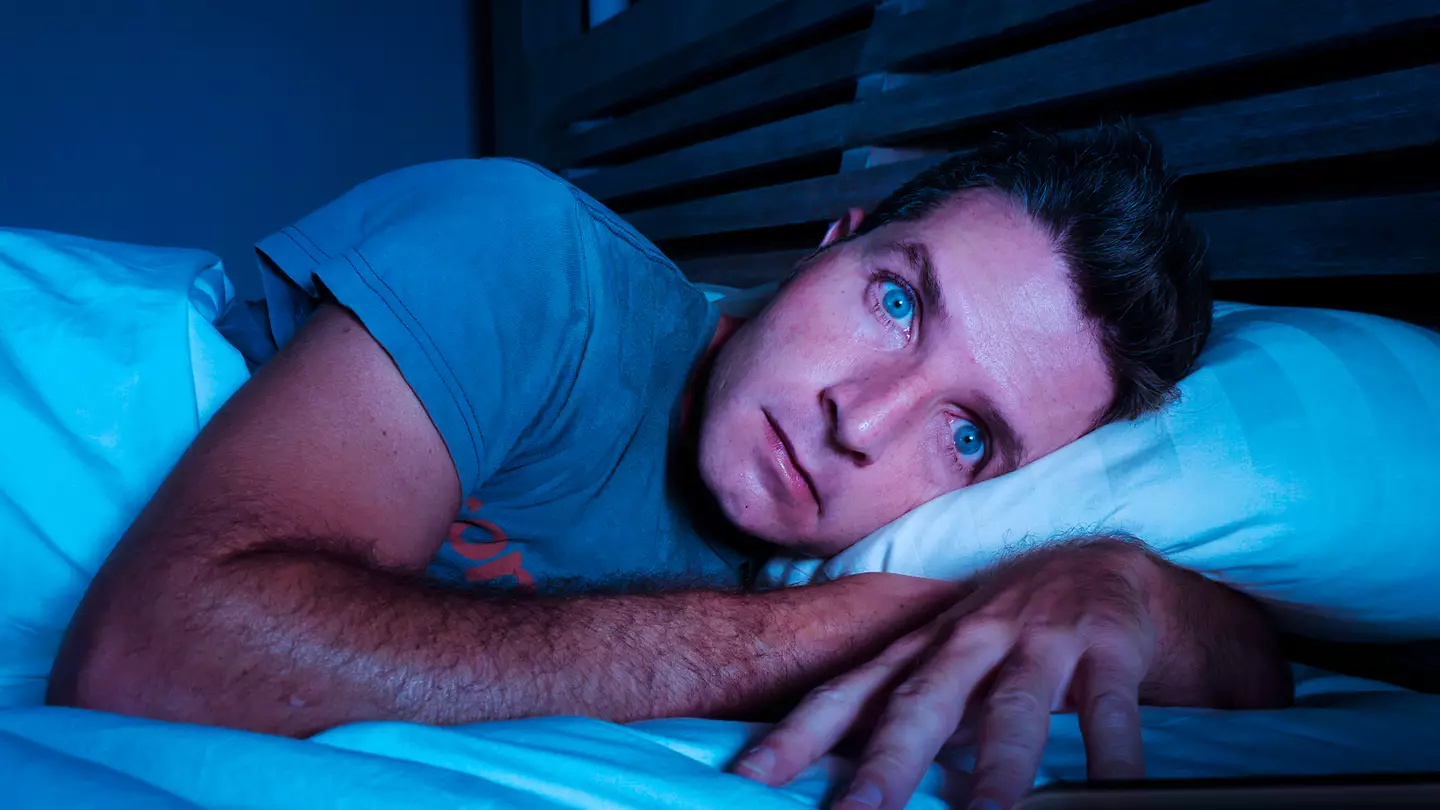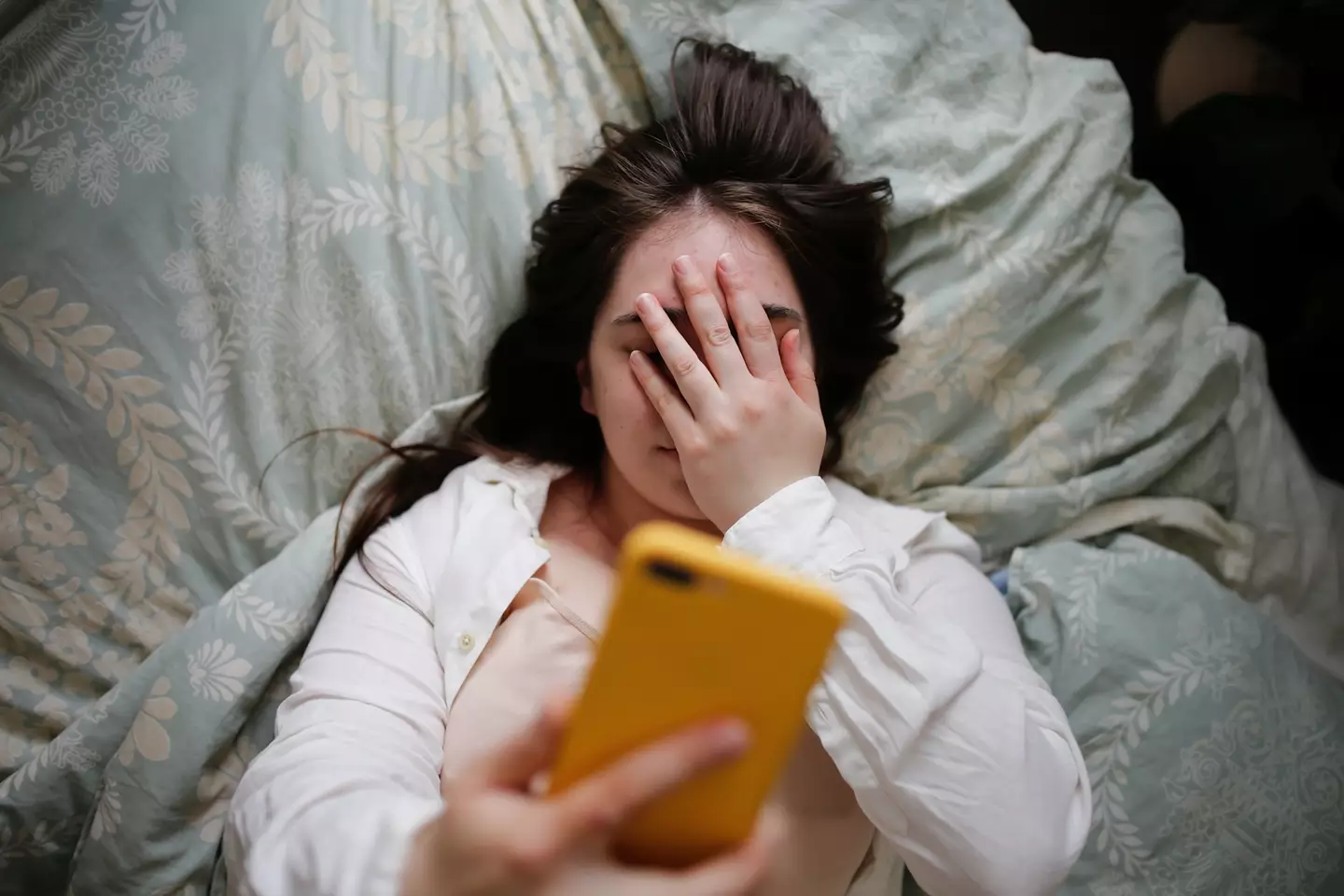
Ever found yourself wide awake at night as you try to suppress a painfully embarrassing memory?
Just as you were dropping off, you find yourself unable to slow down your racing thoughts, as you continue to lie awake recounting every single cringe-worthy thing you've ever done...
It happens to the best of us, but there are actually a number of reasons these late-night cringe-attacks are happening - including bumpy mental health, sleep issues, and unstable hormones.
Luckily, Mike Kocsis from Balance My Hormones has revealed the science behind these late-night scares and how to prevent them.
Our brains at night

Advert
Research reveals that reliving embarrassing moments before bed is down to how our brains process emotions.
So no, it isn't because what you said or did was that appalling, even if it feels that way.
As the body prepares for sleep, activity in the prefrontal cortex - the 'rational' part of our brain - decreases, while the emotional-processing amygdala remains active.
As a result, it’s harder for us to apply context to memory or rationalize the situation, hence why it feels all the more mortifying.
Alas, this is what leads to heightened feelings of embarrassment and humiliation.
Lifestyle factors

There are plenty of lifestyle factors that can cause these 'involuntary autobiographical memories' to pop up more often.
They're especially prevalent when stressed, anxious, or fatigued, as our cognitive resources are too depleted to filter out unhelpful thoughts.
Cortisol, the stress hormone, is meant to dip in the evening to get your body ready for sleep.
But when you're dealing with stress or anxiety, these levels can stay heightened, keeping your brain in fight-or-flight mode and making it harder to quiet the mind.
Then there's sleep deprivation, which can encourage the occurrence of embarrassing thoughts as the brain struggles to regulate emotions.
Ironically, these cringe-attacks likely contribute to sleep deprivation, and the spiral continues...
Health factors

Kocis reveals that hyperthyroidism and high thyroid hormone levels can lead to insomnia, nervousness and racing thoughts - likely triggering a late-night cringe-attack.
Low thyroid hormone levels and hypothyroidism can lead to mental lethargy and brain fog, causing similar symptoms, restlessness, and a racing mind as the body compensates for the low levels.
According to Mayo Clinic, other symptoms of hyperthyroidism can include losing weight without trying, an irregular heartbeat, increased hunger, and sweating.
Dealing with cringe attacks

Fortunately, there are a number of ways to deal with these excruciating moments. Kocsis advises four practices in particular.
Firstly, try reframing the memory. Instead of cringing, try to view the moment with a touch humor and self-compassion.
Would you judge a friend as harshly for the same mistake?
Next, redirect your focus. Engaging in a different mental task - like reading or solving a puzzle - can help break the cycle of rumination.
Practicing mindfulness techniques, such as deep breathing or progressive muscle relaxation, can also help.
These aid in calming the mind and reduce intrusive thoughts before bed.
Finally, implementing a healthy nighttime routine may help you sleep better and therefore reduce the frequency of late-night thought spirals.